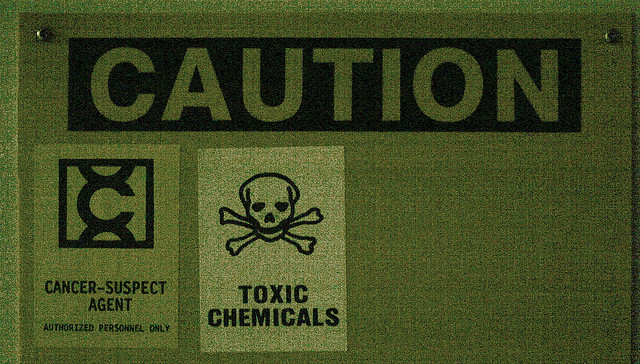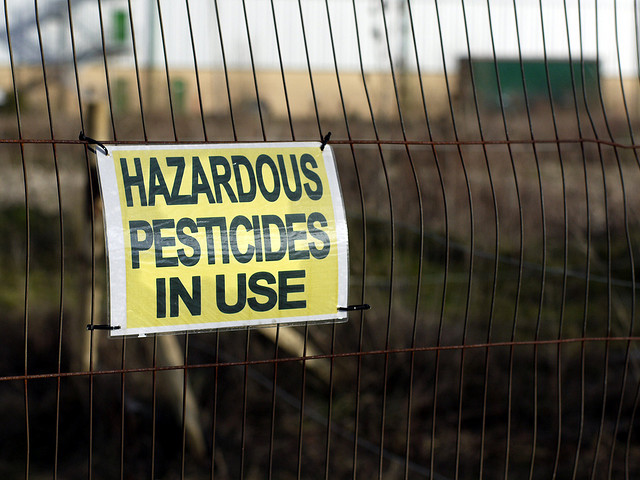Our communities have the right to know when they are at risk of exposure to dangerous substances from accidental releases such as, but not limited to, chlorine, ammonia, hydrochloric acid, and sulfur dioxide. The US Environmental Protection Agency (EPA) agrees. In 1986 EPA created the Emergency Planning and Community Right-to-Know Act (EPCRA) to help communities plan for just such emergencies. EPCRA requires that federal, state, and local governments, Indian tribes, and industries be prepared for hazardous chemical emergencies. It also requires facilities to follow all recordkeeping requirements and report the storage, use, and release of hazardous chemicals to federal, state, and local governments.
Audit, Compliance and Risk Blog
Hazardous Chemicals: Our Communities Have the Right to Know
Posted by STP Editorial Team on Wed, Jan 14, 2015
Tags: Corporate Governance, Business & Legal, Employer Best Practices, Health & Safety, Employee Rights, Environmental risks, Environmental, EHS, EPA, Hazcom
BC Supreme Court Affirms “Polluter Pays” for Site Remediation
Posted by Kristen Brewer on Mon, Jan 12, 2015
Tags: Corporate Governance, Business & Legal, Environmental risks, Environmental, Canadian
Chemical Safety Board Recommends Better Process Safety Management
Posted by Jon Elliott on Mon, Dec 15, 2014
Within the U.S., most chemical safety requirements are imposed by the Occupational Safety and Health Administration OSHA) and the Environmental Protection Agency (EPA). For example, OSHA (or delegated state agencies) administers a Process Safety Management (PSM) Standard, while EPA (or delegated state agencies) administers the Accidental Release Prevention (ARP) regulation. In addition to these sets of regulators, however, Congress has created a national agency to conduct independent investigations of major chemical accidents, and to issue accident-specific findings and specific or general recommendations for improved chemical handling and regulation. This agency’s formal name is the Chemical Safety and Hazard Investigation Board—which usually refers to itself as the Chemical Safety Board or CSB.
Tags: Corporate Governance, Business & Legal, Health & Safety, OSHA, Environmental risks, Environmental, EPA, Hazcom
Do You Need A Corporate Social Responsibility Policy?
Posted by Allison Campbell on Thu, Dec 11, 2014
Twelve years ago, a client asked a financial advisor at a large investment firm for advice on “socially responsible investments.” The advisor said that they didn’t offer much in that field, because there was no client demand. How things have changed! Now, large investment firms as well as local credit unions and even small, family-owned businesses are all anxious to demonstrate that their business is “socially responsible,” “green,” or “gives back to the community”—all values reflected in the concept of Corporate Social Responsibility (CSR). More than feel-good slogans, these terms represent initiatives that offer concrete benefits to both a company and its stakeholders, including customers and the wider community.
Tags: Corporate Governance, Business & Legal, Environmental, csr, corporate social responsibility
Waste Identification Part II: Is My “Solid” “Waste” A “Hazardous Waste”?
Posted by Jon Elliott on Mon, Dec 08, 2014
Federal and state laws govern “hazardous wastes”—the federal law is commonly called RCRA, after the Resource Conservation and Recovery Act of 1976. However, RCRA itself was enacted as an expansion of the prior Solid Waste Disposal Act of 1965, and requirements for both solid and hazardous wastes have been revised many times in recent decades. The US Environmental Protection Agency (EPA) administers these requirements nationally, delegating many provisions to individual states that qualify for authorization to assume regulatory roles.
Tags: Business & Legal, Health & Safety, Environmental risks, Environmental, EHS, Hazcom
Waste Identification Part I: Is My Material A “Solid” “Waste”?
Posted by Jon Elliott on Mon, Dec 01, 2014
Federal and state laws govern “hazardous wastes”—the federal law is commonly called RCRA, after the Resource Conservation and Recovery Act of 1976. However, RCRA itself was enacted as an expansion of the prior Solid Waste Disposal Act (SWDA) of 1965, and requirements for both solid and hazardous wastes have been revised many times in recent decades. The US Environmental Protection Agency (EPA) administers these requirements nationally, delegating many provisions to individual states that qualify for authorization to assume regulatory roles.
Tags: Business & Legal, Health & Safety, Environmental risks, Environmental, EPA, Hazcom, RCRA
U.S. And China Try To Change The Climate Change Conversation
Posted by Jon Elliott on Wed, Nov 26, 2014
On November 12, U.S. President Barack Obama and Chinese President Xi Jinping announced a bilateral agreement to cut greenhouse gas (GHG) emissions. Since these countries are the two biggest economies and largest emitters of GHGs – and are in a period when they seem to disagree about almost everything – this agreement has substantial symbolic value. But will it have much practical value?
Tags: Business & Legal, Environmental risks, Environmental, Greenhouse Gas, ghg
Strategic planners around the world are preparing “climate change adaptation plans,” designed to identify their organization’s key activities and missions, evaluate how climate change might affect them, and develop organizational changes designed to anticipate and adapt in ways that preserve the organization’s performance. On October 31, the US Environmental Protection Agency (EPA) issued its own Climate Change Adaptation Plan. EPA’s divisions (Water, Air and Radiation, etc.) and 10 regional offices also issued plans covering their activities. These Plans provides a collective model for multi-level organizational plans, and also tell organizations in the US what help to expect from EPA when they plan for their own adaptations to climate change.
Tags: Corporate Governance, Business & Legal, Environmental risks, Environmental, EHS, EPA, Greenhouse Gas, climate change
STP Launches New Online Gap Analysis Tool
Auditors and Quality Managers across all manufacturing and service industries use ISO and OHSAS standards to put their Environmental and Health and Safety Management Systems into practice. These standards help implement effective and efficient EHS requirements, or VPP Occupational Health and Safety Management Systems. In this blog I review and summarize the two standards, their aims and obligations.
Tags: Corporate Governance, Business & Legal, International, Health & Safety, Environmental risks, Environmental, EHS
In September I blogged about OSHA’s Airborne Contaminant Standard, which sets ambient air limits for over 400 workplace air contaminants to protect employees from exposures to airborne chemical and particulate contaminants in workplace air. In October, OSHA issued an extensive Request for Information (RFI), asking for comments on a variety of approaches to setting these limits in the future. In the RFI, OSHA notes that most exposure limits date from 1971, and so they don’t reflect four decades of advances in understanding of chemical toxicology. OSHA is attempting to build on legal requirements for standard-setting developed by court cases since 1971, and to update—the agency doesn’t say finesse—some of the limitations. The RFI asks over 50 questions, and solicits comments no later than April 8, 2015.
Tags: Corporate Governance, Business & Legal, Health & Safety, OSHA, Environmental risks, Environmental










